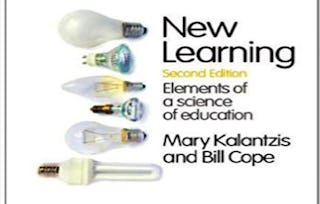Social Pedagogy across Europe is the first Massive Open Online Course focused on social pedagogy – a relationship-centred approach to supporting people’s learning, well-being and social inclusion in ways that promote social justice. The course is structured in eight sessions presented over four weeks – an introductory session, six sessions outlining social pedagogy in different European countries and sharing some innovative practice insights, and a review session to support you in applying your learning. You can undertake the six country sessions in any order you would like.

Social Pedagogy across Europe
3 days left! Gain next-level skills with Coursera Plus for $199 (regularly $399). Save now.

(89 reviews)
Skills you'll gain
Details to know

Add to your LinkedIn profile
See how employees at top companies are mastering in-demand skills

There are 9 modules in this course
Social Pedagogy across Europe is the first Massive Open Online Course focussed on social pedagogy – a relationship-centred approach to supporting people’s learning, well-being and social inclusion in ways that promote social justice.<br>The course is structured in eight sessions presented over four weeks – an introductory session, six sessions outlining social pedagogy in different European countries and sharing some innovative practice insights, and a review session to support you in applying your learning. You can undertake the six country sessions in any order you’d like. Through this course we aim to:<br>*Give you an insight into how social pedagogy has been developing across Europe, highlighting both the diversity and connections, <br>*Highlight the importance of valuing every person as intrinsically ‘rich’, recognising their unique potential and ability to be a valuable member of society, <br>*Introduce you to ways in which you can bring this belief to life in everyday interactions and relationships that support people’s learning, nurture their well-being and enable them to feel included in society, <br>*Ensure you are familiar with the most fundamental aspects of social pedagogical practice in ways that are applicable in your own personal and professional life. <br>Please watch our introductory video to get more insights.
What's included
1 video7 readings
In this module, you’ll hear from our ThemPra team how social pedagogy has been developing across Europe and what the central guiding principles are. We’ll also tell you more about the social pedagogy perspective we’re taking in the MOOC and what themes we’ll be covering over the course. Finally, we’ll dive straight into the first theme: participatory practice. You’ll have a chance to find out why participation is important and how you can ensure that the people you support are meaningfully involved in decisions that affect them. Find out more about this module in the short intro video below.
What's included
6 videos8 readings2 assignments
Our first country module will take you to the ‘cradle’ of social pedagogy: Germany. In this module by our colleagues from the KJSH in Northern Germany, we’ll first give you an overview of social pedagogy in Germany, and then highlight the dynamics at play in social pedagogical practice, before introducing you to ways of working with, and strengthening, people’s resourcefulness. We’ve included six videos and two case studies about resource-orientated case management at the KJSH. Please watch our short intro video for more details.
What's included
6 videos8 readings2 assignments
In this module’s first section you’ll meet our colleagues at the University of Central Lancashire, who will introduce you to social pedagogy in the UK. In particular, we’ll focus on the role of creativity in social pedagogical practice. Our session includes ten short videos and a choice between two creative activities you can do as part of your assignment. Please watch our short intro video for more details.
What's included
10 videos7 readings2 assignments1 peer review
This module features the Danish contribution from our teams at Københavns Professionshøjskole and Common View. We’ll introduce you to social pedagogy in Denmark and a model for planning purposeful shared activities: SMTTE. We use this a lot in Denmark as we love undertaking activities together with the people we support social pedagogically. Please watch our short intro video for more details about our session.
What's included
6 videos7 readings2 assignments
This module comes from our colleagues at Masaryk University in the Czech Republic. As you’ll learn, social pedagogy has a long history and a very interesting tradition there. We’ll also explore how prevention activities can be used within social pedagogical practice and why these are important. Our session includes four videos and several further resources on prevention programmes in the Czech Republic. Please watch our short intro video for further details.
What's included
4 videos7 readings2 assignments
In this module we’ll introduce you to social pedagogy in Spain. Our team from Universitat Autònoma de Barcelona is pleased to explore with you the history and current situation of social pedagogy in Spain and the role of community education within this framework. We’ve included a total of sixteen videos aimed at giving you a comprehensive and practice-relevant insight into the role that community education plays within community life and the education of individuals. Please watch our short intro video for further details about our session.
What's included
17 videos7 readings2 assignments
In this module we’ll be exploring with you the role of social pedagogy as a perspective in Belgium. We’ll also introduce you to aspects around social justice and how social pedagogues can engage with people who are disadvantaged because of social inequality, given that we won't be able to solve complex structural problems like poverty. Over our 4 videos, we’ll also share some practice insights illustrating how we can ‘keep the door open’ to ensure we engage with those wider issues. Please watch our short intro video, in which we outline our session in more detail.
What's included
5 videos7 readings2 assignments
In this module we’ll briefly be reviewing the key learning points from the previous sessions and encouraging you to revisit your reflections from earlier sessions. But we don’t stop there. We’ve also included a glimpse at social pedagogy across the globe with short contributions illustrating social pedagogical practices in Mexico, Greece, the United States, Canada, Brazil and Slovakia. You’ll also find some practical tips on how you can nurture change and develop some of the ideas you've been learning about in your team and wider organisation. Find out more about this final session in our short introductory video.
What's included
12 videos11 readings1 peer review
Instructors



Offered by
Explore more from Education
 Status: Free
Status: FreePolitecnico di Milano
 Status: Preview
Status: PreviewUniversity of Illinois Urbana-Champaign

Commonwealth Education Trust

Commonwealth Education Trust
Why people choose Coursera for their career

Felipe M.

Jennifer J.

Larry W.

Chaitanya A.
Learner reviews
- 5 stars
78.65%
- 4 stars
11.23%
- 3 stars
4.49%
- 2 stars
4.49%
- 1 star
1.12%
Showing 3 of 89
Reviewed on Mar 4, 2019
I felt the course so far has helped me gain a greater understanding of social pedagogy
Reviewed on Mar 17, 2019
This is an excellent course and wonderful way to find out more about social pedagogy
Reviewed on Jul 14, 2019
Great Course ! Really enjoyed it ! Challenging but great !

Open new doors with Coursera Plus
Unlimited access to 10,000+ world-class courses, hands-on projects, and job-ready certificate programs - all included in your subscription
Advance your career with an online degree
Earn a degree from world-class universities - 100% online
Join over 3,400 global companies that choose Coursera for Business
Upskill your employees to excel in the digital economy
Frequently asked questions
To access the course materials, assignments and to earn a Certificate, you will need to purchase the Certificate experience when you enroll in a course. You can try a Free Trial instead, or apply for Financial Aid. The course may offer 'Full Course, No Certificate' instead. This option lets you see all course materials, submit required assessments, and get a final grade. This also means that you will not be able to purchase a Certificate experience.
When you purchase a Certificate you get access to all course materials, including graded assignments. Upon completing the course, your electronic Certificate will be added to your Accomplishments page - from there, you can print your Certificate or add it to your LinkedIn profile.
Yes. In select learning programs, you can apply for financial aid or a scholarship if you can’t afford the enrollment fee. If fin aid or scholarship is available for your learning program selection, you’ll find a link to apply on the description page.
More questions
Financial aid available,
¹ Some assignments in this course are AI-graded. For these assignments, your data will be used in accordance with Coursera's Privacy Notice.



















